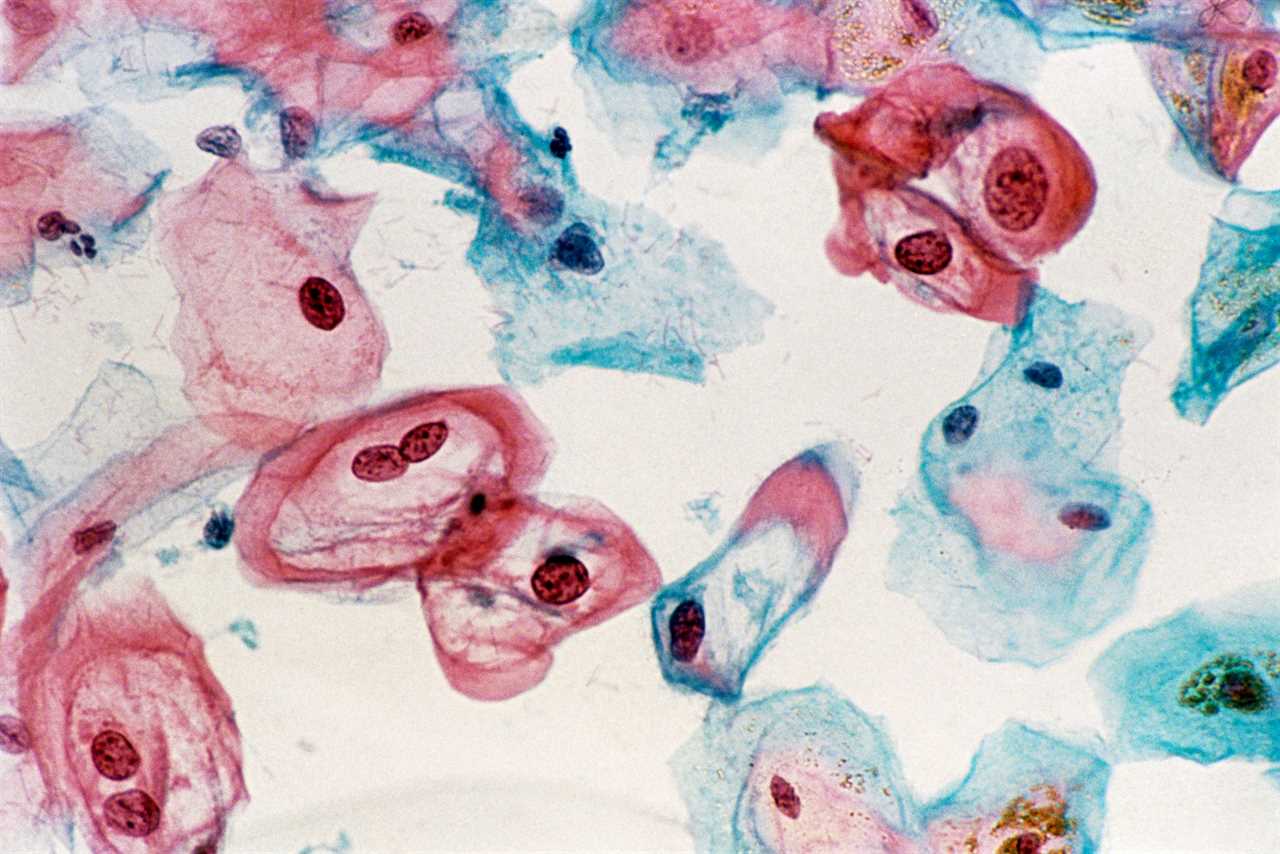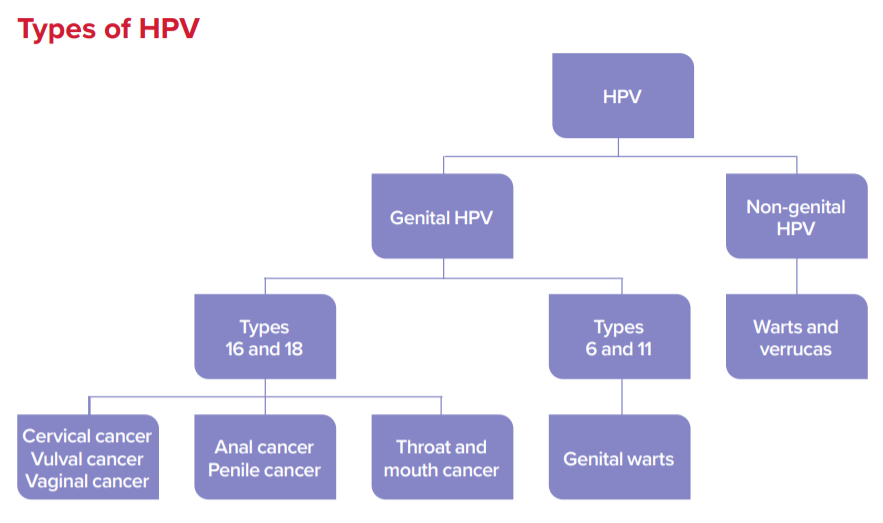TOO many Brits are unaware of a cancer-causing virus that affects eight in ten adults.
HPV (human papilloma virus), in most cases, is nothing to worry about.

But for a minority of people, it causes cancers seen in both men and women.
Three in ten adults have never heard of HPV, according to a YouGov survey on behalf of The Eve Appeal, a gynaecological cancer charity.
There are more than 100 types of HPV, but only some of them are high risk.
It affects 80 per cent of people at some point in their lives, spreading through any type of sexual skin-to-skin contact.
But it is not a “dirty” infection related to promiscuity, says Dr Naomi Sutton, a sexual health consultant on Channel 4’s Sex Clinic.
And even if you are not currently sexually active, it does not mean you are free of the bug – even virgins can get it if they have done foreplay.
Dr Sutton said: “Too often I hear the words ‘clean’ and ‘dirty’ used in my clinic when describing someone’s sexual health.
“Using these words promotes stigma and misunderstanding because sexual health has absolutely nothing to do with personal hygiene.
“In actual fact the vast majority of us will carry viruses which are sexually transmitted, including HPV types and HSV (Herpes Simplex Virus) throughout our adult lives.
“Education is so very important to combat stigma and stop misunderstanding.”
Athena Lamnisos, CEO, The Eve Appeal, said: “It affects everybody, can be transmitted by everybody and could lead to a cancer in any body. HPV has no gender.”
1. HPV can cause at least six cancers
Unfortunately, sometimes HPV doesn’t get cleared from the body and can lead to several cancers, the most common being cervical.
It can lead to head and neck – such as throat cancer – vaginal, vulval, anal or penile cancer, too.
High-risk HPV types can cause changes to the DNA inside the cells so they start to behave differently.
Over time, the affected cells can start to grow out of control, which can lead to cancer.
2. It also causes genital warts
Some strains of HPV can cause genital warts, spread through sexual contact (described below).
The warts can look like small, flesh-colored bumps or have a cauliflower-like appearance around the vulva, penis shaft or anus.
They can also develop in the mouth or throat of a person who has had oral sexual contact with an infected person.
Some types of HPV affect the skin on other parts of the body, mostly on the hands and feet.
These types can cause minor problems, such as skin warts and verrucas.

3. It’s spread through sexual contact
HPV is transmitted through skin-to-skin sexual contact – including anal and oral sex and mutual masturbation. Sharing sex toys also passes the virus.
It’s recommended to use a condom during sex, oral sex and on sex toys. Or at least wash the sex toys thoroughly.
A myth is that if you’ve always used condoms, you’re not at risk of HPV. Condoms can help reduce the likelihood of transmitting HPV and other STIs, but there can always be skin exposed.
4. HPV does not mean your partner has cheated
If you or your partner gets a HPV positive result, it does not necessarily mean they have had sex with someone else.
HPV can be inside the body for many years without showing signs.
For example, gential warts can take months or even years to develop after an infection, and there is no way of knowing how long ago exposure was based on the appearance of the warts.
In most cases, the immune system clears HPV without any problems and is usually gone within two years.
5. HPV has no symptoms
People that have HPV will not show symptoms – unless it is one that causes genital warts.
Usually the immune system clears it, so many are never aware they ever had it.
Dr Sutton said: “Most people remain unaware that they have any infections because they don’t always cause symptoms but, it doesn’t mean they are not there.”
6. There is a HPV vaccine
All children aged 12-13 are currently offered a vaccine to protect against four key strains of HPV – 6, 11, 16 and 18.
If you are eligible but missed the HPV vaccine at school, you can still have it free on the NHS up until your 25th birthday.
Men and people assigned male at birth who have sex with men and are aged 16-45 are also eligible for free HPV vaccines from sexual health and HIV clinics.
7. HPV causes almost all cervical cancer
Some 99.7 per cent of cervical cancer is caused by high-risk forms of HPV.
People with a cervix are eligible for cervical screening on the NHS aged 25 – 60.
The screening looks for HPV.
Types 16 and 18 – which are included in the vaccine – are responsible for 70 per cent of cases.
So you still need to have your smear, even if you have had the vaccine.
8. A HPV positive smear test result does not mean you have cancer
Women may get a HPV positive result after their smear test.
This doesn’t mean they have cervical cancer. Rather, it means they will need to have more regular check-ups to make sure the HPV doesn’t develop.
A woman may need another screening test in one year (rather than three), or a test that looks at the cervix if there are abnormal cells found.
Abnormal cells are not something to worry about either, as the NHS says “it’s very unlikely you have cancer and any abnormal cells will not get worse while you’re waiting for your appointment”.
9. Men can’t get a test for HPV
While women will find out if they have high-risk HPVs during their smear, there is not a test for men.
For a long time, the public health focus was on screening women for HPV because before the 2000s, cervical cancer was the second most common cancer in the world, but preventable in most cases.
Now, boys at school in England, Wales and Scotland are also offered the HPV vaccine as evidence has shown the virus is linked with some cancers in men, too.
The best way men can prevent HPV infection is use condoms every time you have sex.
There are tests available for men, but Superdrug says they may be hard to access, and most of the time, HPV will not lead to health problems anyway.
For more information about HPV, visit the Eve Appeal page by clicking here.






